The 17 Best Products for Acne Scars in 2023
Creams, gels, and retinoids that help even texture and brighten dark marks.
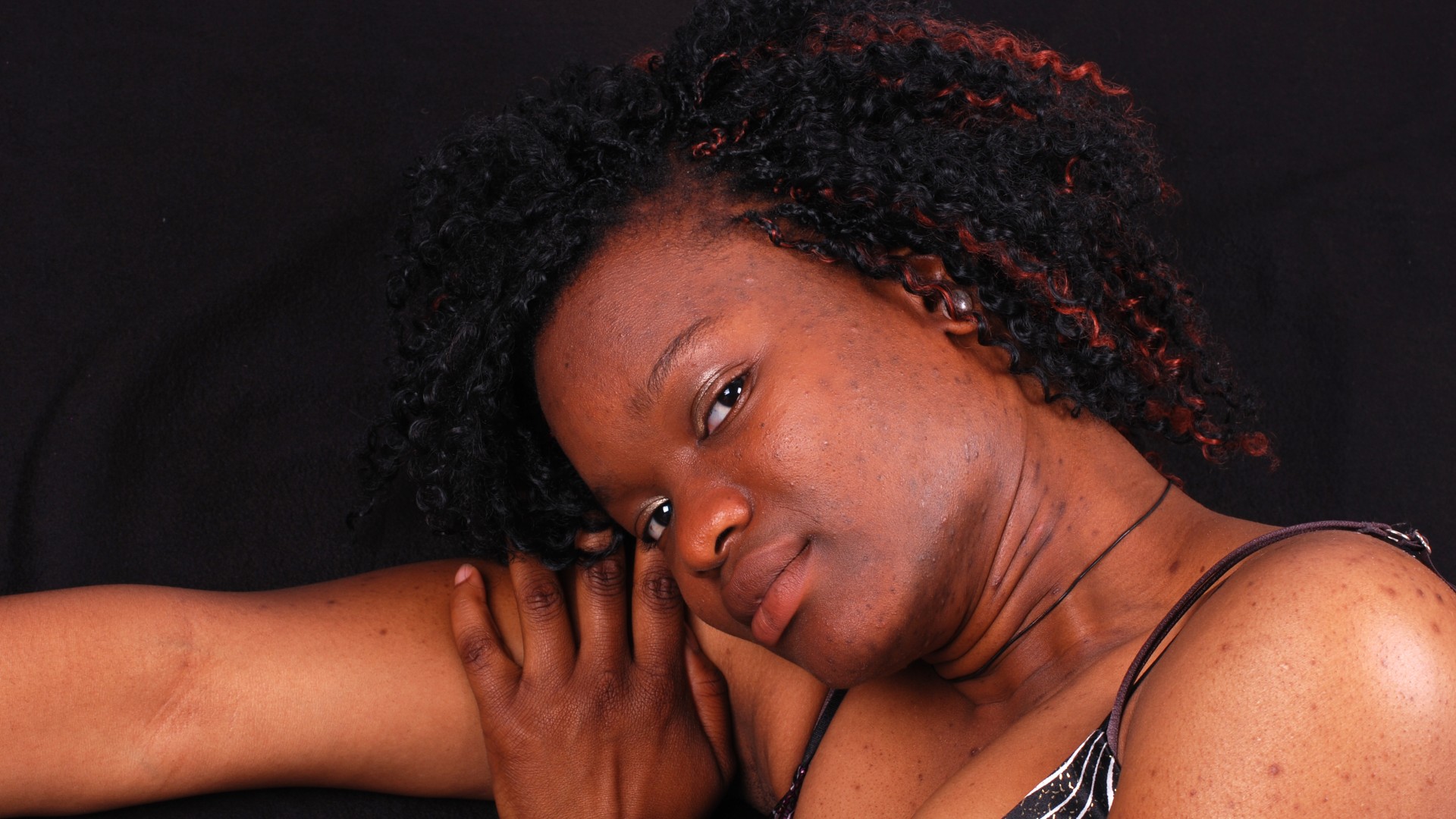
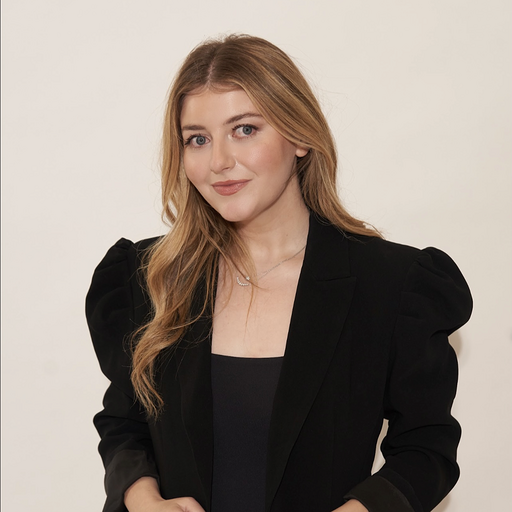
Acne scars aren’t one-size-fits-all. But, whether you’re dealing with pesky red or dark marks or more permanent changes in texture, using one of the best products for acne scars can help fade and reduce their appearance. To be clear, applying a gel, spot treatment, or serum isn’t going to magically give you crystal-clear, flawless skin overnight—that’s a bit unrealistic. That said, incorporating resurfacing formulas, retinoids, and other dermatologist-recommended acne scar treatments can make a huge difference.
Addressing current scars isn’t the only thing to keep top of mind, though. You must ensure that you’re a) addressing any active acne on the skin and b.) doing your best not to make matters worse during treatment. “Larger, deeper breakouts lead to more potential scarring,” explains board-certified dermatologist Dr. Marisa Garshick. “Avoid picking at the skin, as the more irritation and inflammation that develops, the more likely the acne is to scar.”
Here, Dr. Garshick, along with board-certified dermatologist and Facet medical director Dr. Peter Young, break down what causes acne scars, how to treat them, and give their recommendations on the best products for acne scars.
What Causes Acne Scars?
While some pimples will come and go, others will come—and leave a permanent mark in their wake. The likelihood that acne will scar boils down to a handful of factors according to Dr. Young. He explains that inflammatory acne that’s red, swollen, and painful, along with cystic acne, is more likely to scar. What’s more, you can have a genetic predisposition to scarring. “The tendency towards acne scarring often runs in families,” he says. “Having a first degree relative with a history of acne scarring is a risk factor.”
Popping, squeezing, or picking at pimples can also make scarring more likely, so do your best to keep your hands clean—and off of your face.
Are There Different Types of Acne Scars?
As a rule of thumb, an acne scar is a mark left behind after a pimple goes away. But, the world of acne scars is a bit more nuanced. “Acne scars can appear as red or brown discoloration or as a change in skin texture, with the skin appearing indented or raised,” Dr. Garshick explains.
The type of scar you develop is tightly linked to your skin type and the type of breakout you experience the most. “Individuals with darker skin types are more likely to develop hyperpigmentation, while those with fair skin may notice more red blemishes. Larger, deeper breakouts also lead to more potential scarring.”
What to Look For
Prevention is key (don’t pick, please!), but if you already have an acne scar there are a couple skincare ingredients that can make a visible difference. You’ll want to start using a retinoid, acids, antioxidants, and, of course, sunscreen. “Retinoids are the most effective topical medications to help improve the appearance of acne scars. Retinol and adapalene are available over the counter, whereas tretinoin requires a prescription,” Dr. Young says. Dr. Garshick adds that retinoids are ideal for those who want to even out skin texture. “They work to regulate skin cell turnover, which in turn helps to even skin tone and boost collagen production to improve the textural changes.”
In a similar vein, exfoliants, like glycolic acid, lactic acid, mandelic acid, and salicylic acid, can “work to eliminate dead cells” and “improve both texture and tone,” according to Garshick. While antioxidants, like vitamin C, won’t do much for indented or raised scars, they can help brighten discoloration.
Then there’s sunscreen—perhaps the most useful product in treating acne scars that are hyperpigmented. “With sun exposure, scars have the potential to darken which can make them more noticeable,” warns Dr. Garshick. “While those with acne are often hesitant to apply different products to their skin for fear of worsening breakouts, it is important for those with acne to remember to apply sunscreen and should look for one that is non-comedogenic and won’t clog the pores.”
The Best Products for Acne Scars
- The Best Retinal to Treat Acne Scars: Medik8 Crystal Retinal
- The Best Serum to Treat Acne Scars: iS Clinical Pro-Heal Advanced Serum
- The Best Pimple Patch to Treat Acne Scars: ZitSticka HyperFade Microdart Blur Patches
- The Best Sunscreen to Treat Acne Scars: Supergoop! Unseen Sunscreen
- The Best At-Home Tool to Treat Acne Scars: Nurse Jamie Beauty Stamp Micro-Exfoliating Tool
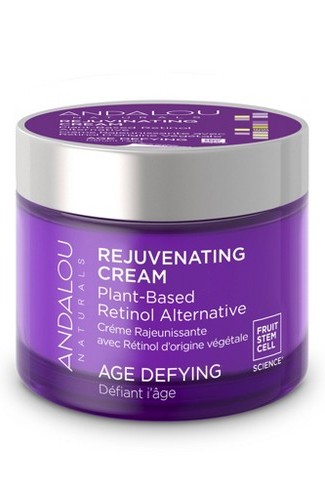
“This cream combines fruit stem cell complexes and antioxidants with bakuchiol, a plant-based retinol alternative. It is gentle yet effective and can help to reduce blemishes while also smoothing the skin and can be used one to two times per day,” says Dr. Garshick. It’s ideal for mature skin types (it helps with fine lines and wrinkles!), but is suitable for anyone looking to give their skin a jumpstart.
Pros: Plant-based retinol; Hydrating; Good for mature skin
Cons: Not as strong as a retinoid
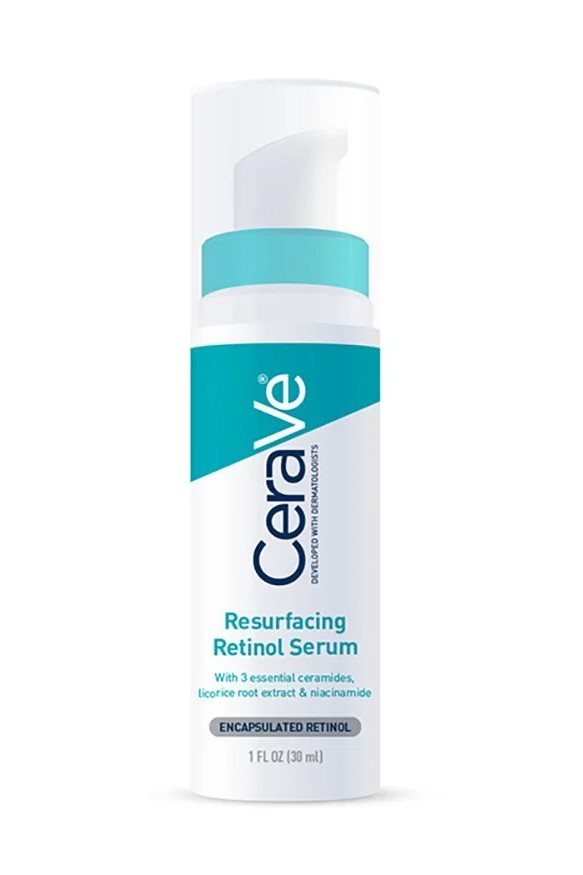
Sensitive skin? Dr. Garshick suggests you scoop this product up to get your retinol fix. “It contains ceramides to help support and strengthen the natural skin barrier and niacinamide which is soothing and calming on the skin,” she explains. But as is true with any retinol product, you may experience a short purging period in which your acne gets worse before it gets better. The good news? The product will increase your skin cell turnover and the dark marks will fade that much quicker.
Pros: Hydrating and soothing; Dermatologist-approved
Cons: Might cause an acne purge
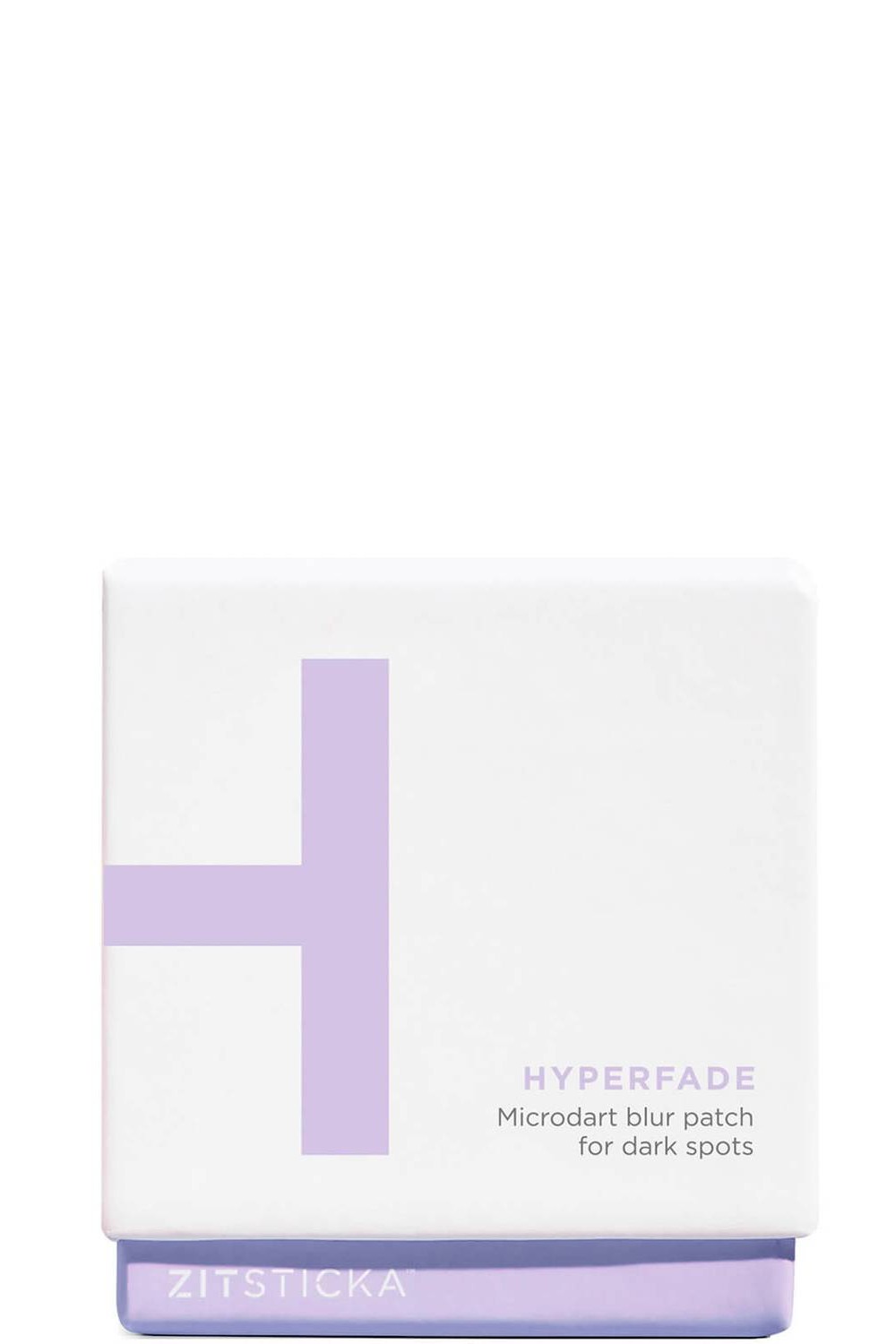
“These patches work to reduce the appearance of post-acne blemishes by lightening and brightening using kojic acid, niacinamide, vitamin C, and arbutin without irritating the skin,” explains Dr. Garshick. You’re going to want to make sure the pimple has completely resided (we’re talking about no more puss or inflammation) before incorporating these into your routine. Once you’re in the clear, just pop on a patch every three days before bed and let it do its thing.
Pros: Easy to use; Can be worn under makeup; Dermatologist-approved
Cons: Excess packaging
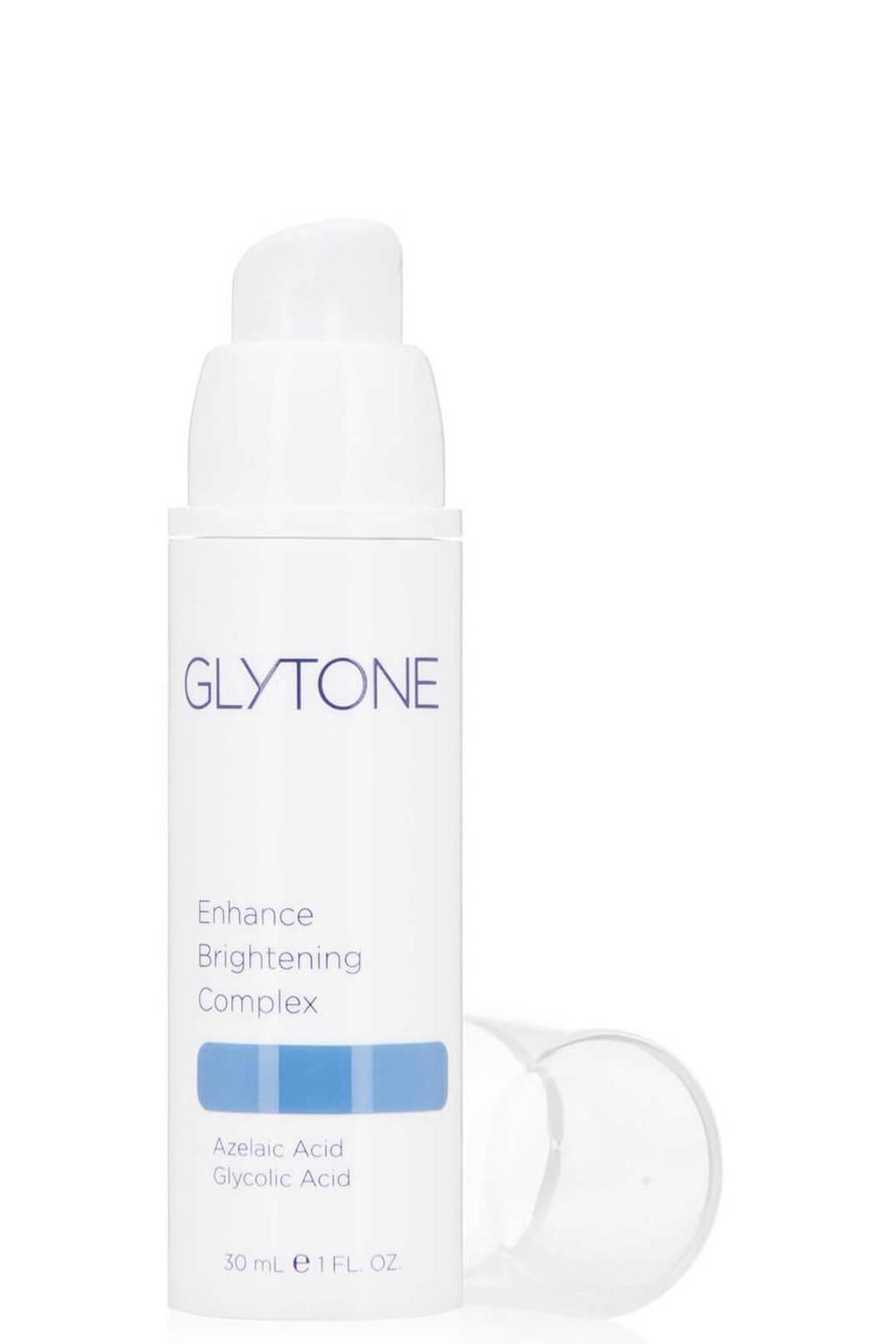
While retinol is a no-go during pregnancy, Dr. Garshick says that this azelaic- and glycolic-based formula is A-OK. “It helps address dark spots and uneven skin tone, while also improving overall texture,” she adds. One of the best features about this product is that it doubles as a moisturizer. So not only is going to keep your skin hydrated, but it's simultaneously going to combat the drying effects of the acids. While the pros are plentiful, this product is an investment. You'll need a restock about every month and a half.
Pros: Pregnancy safe; Dermatologist-approved
Cons: Expensive
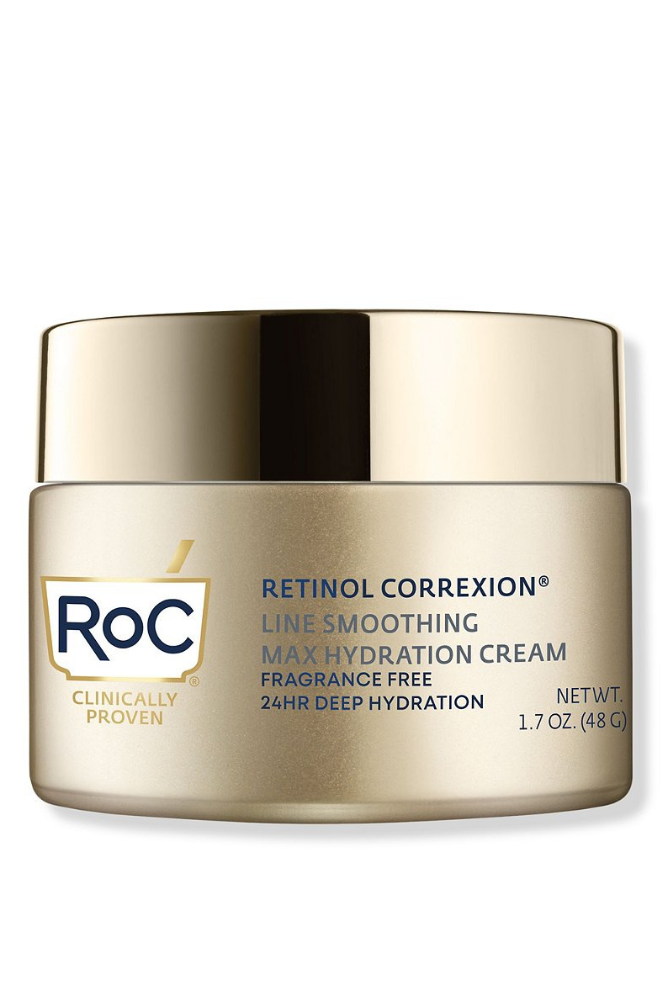
One of Dr. Young’s personal favorites, this drugstore moisturizer addresses a range of concerns. Not only will it work to brighten dark spots and improve texture (thank you, retinol), but it’s also packed with hyaluronic acid to plump up the skin. As with any skincare treatment, you’re going to have to set aside some time to let this product work its magic. Expect to use this for at least eight weeks before noticing a difference.
Pros: Dermatologist-approved; Brightens dark spots; Affordable
Cons: Takes time to see results; Oily texture
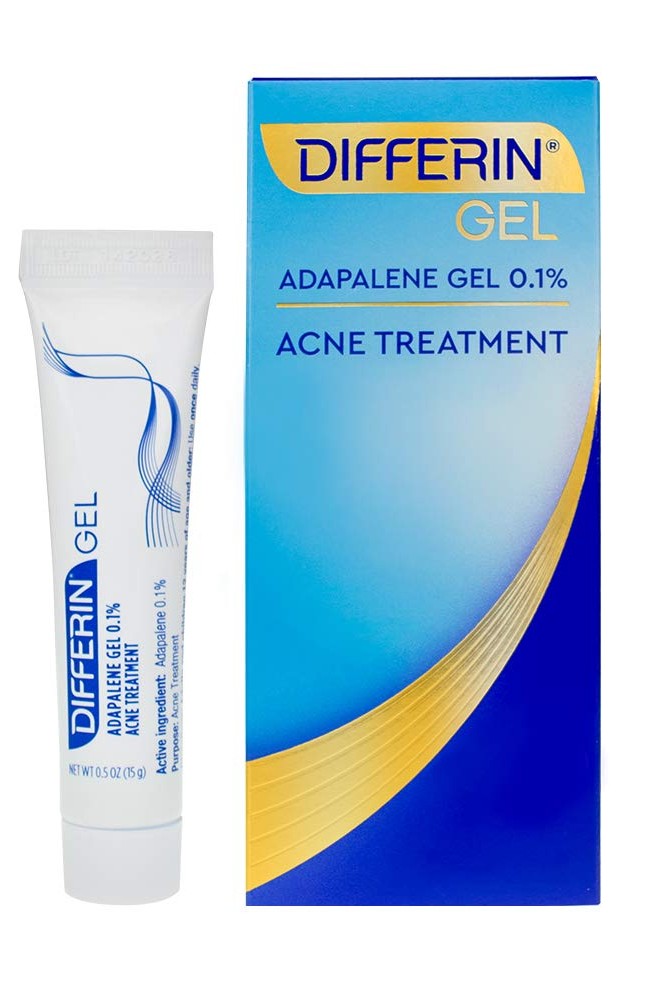
While a dermatologist can prescribe retinoids like Retin-A and tretinoin, you can also get your fix at the drugstore via a vitamin A derivative called adapalene. Dr. Young is a big fan of this product for anyone with indented acne scars. It’s a great way to resurface the skin’s texture and boost collagen production. That in mind, retinol can be drying and make the skin more sensitive to the sun, so start out using this product just twice a week and don’t forget to apply sunscreen.
Pros: Dermatologist-approved; Speeds up cell turnover; Available at drugstore
Cons: Can be drying or cause irritation
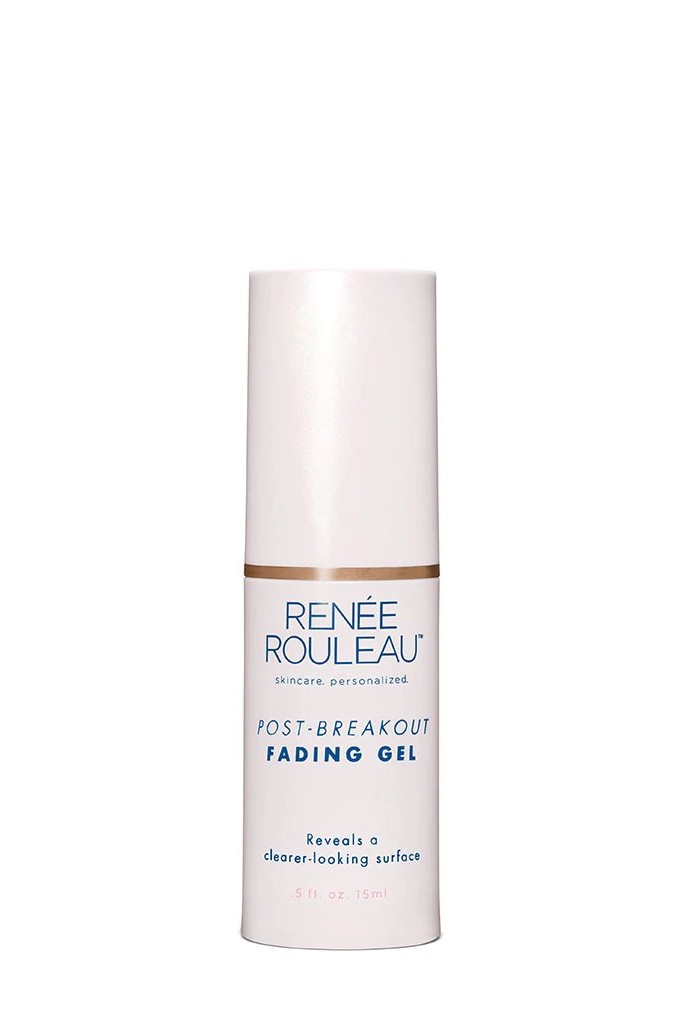
The brand’s Anti Bump Solution is a miracle worker for cystic acne—and this product is the ultimate second line of defense. Once your pimple is completely healed, this gel works wonders to reduce the lingering redness. To make sure all the exfoliating acids penetrate the skin, you’ll want to apply this directly to the skin. Wipe away existing skincare on areas you’re trying to treat and dab this solution on with a Q-tip.
Pros: Fades redness; Exfoliates
Cons: Might cause irritation
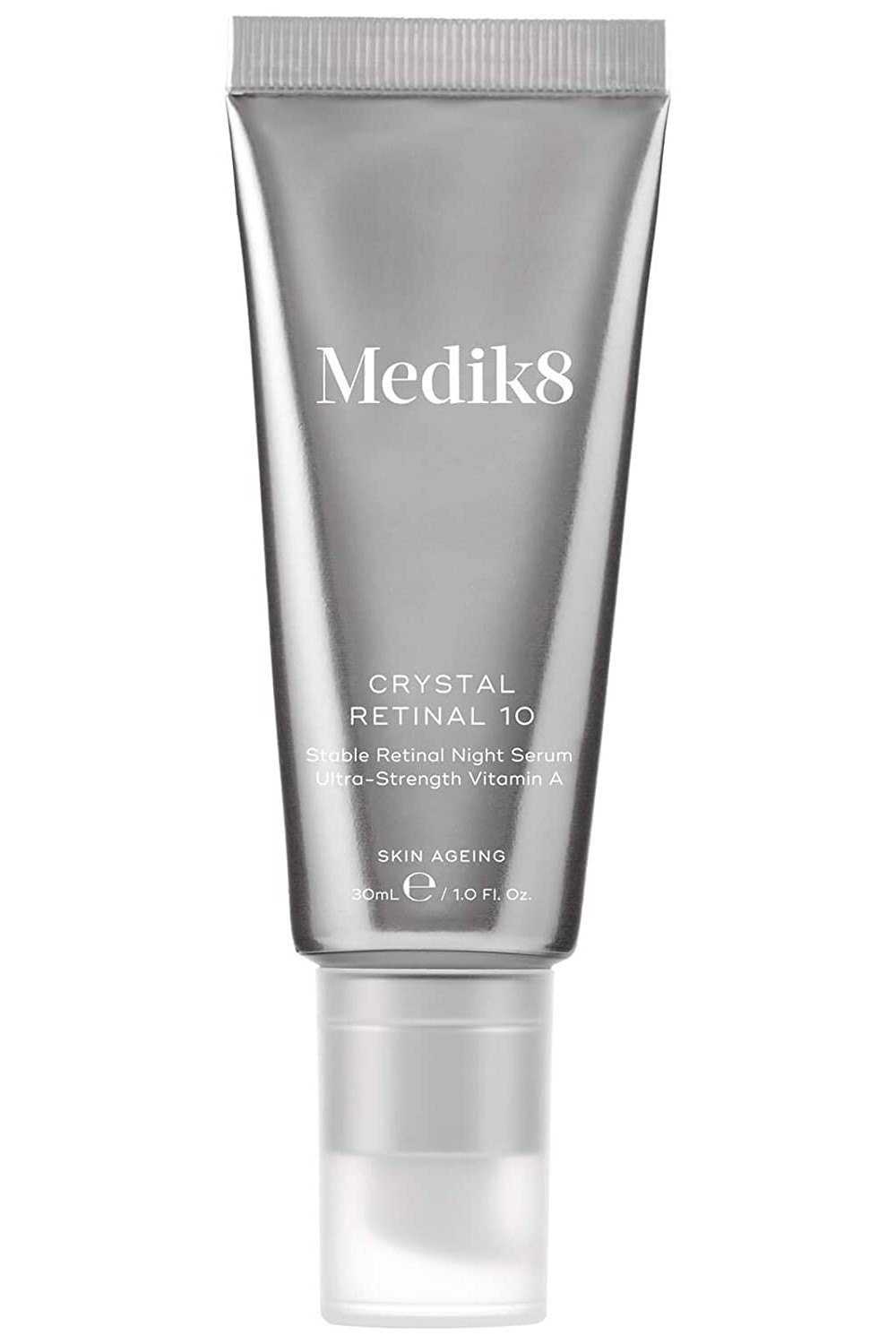
Dr. Garshick explains that this vitamin A serum uses retinaldehyde, a type of retinoid which delivers results faster than retinol. She’s a big fan of this product for improving overall texture and tone. Another plus? Retinaldehyde is thought to be less irritating than a traditional retinoid, so it’s great for drier or more easily irritated skin types. But don’t go crazy applying it every night—still ease it into your skincare routine.
Pros: Fast-acting; Dermatologist-approved
Cons: Can be irritating and cause irritation
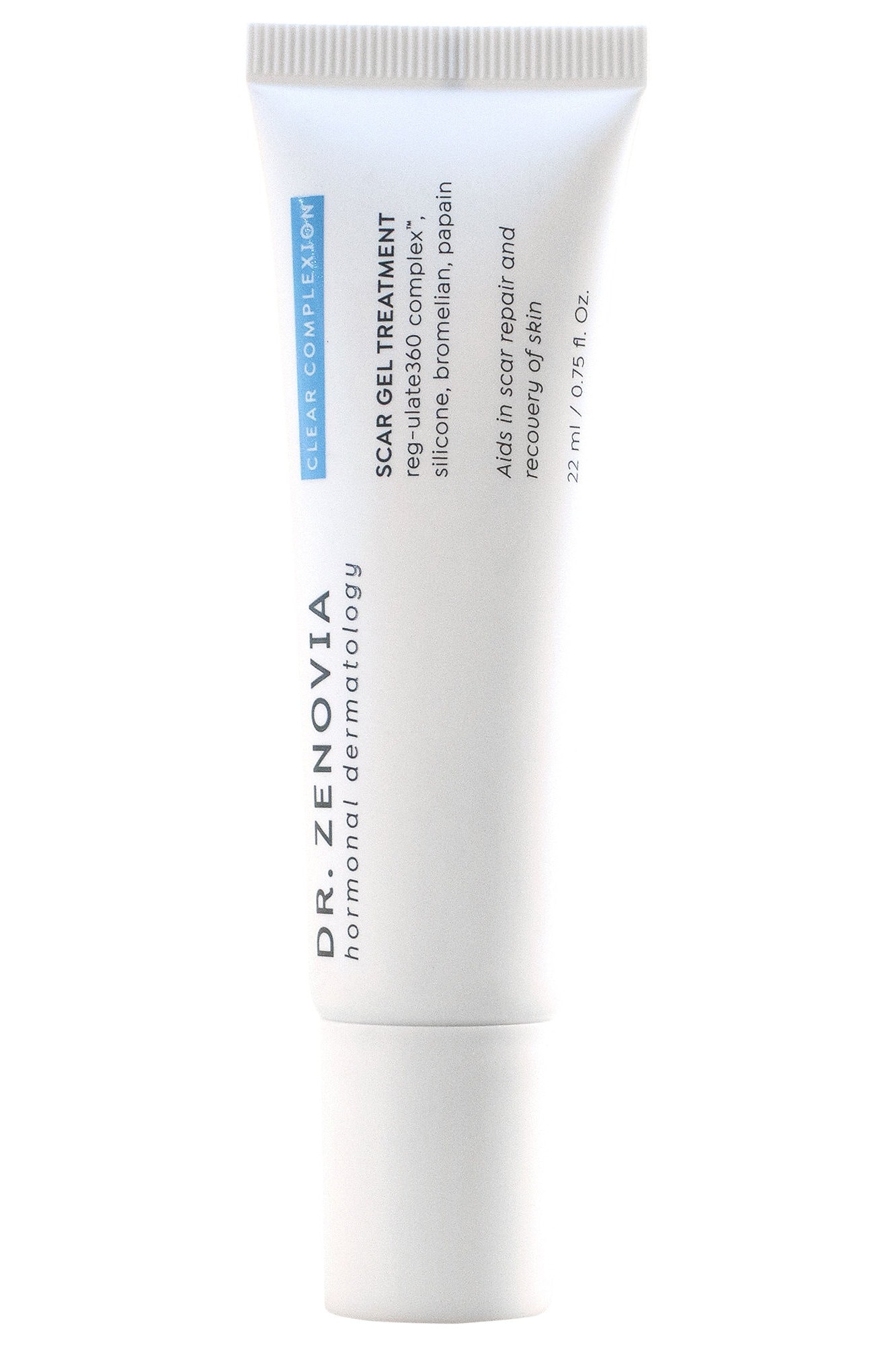
This medical-grade formula is the real deal. Thanks to an ingredient called bromelain, this gel is able to soften the texture of scars from both acne and surgery. Unlike a normal gel that you slather on in a second, you’re going to want to take the time to massage this gel onto the affected area. For new scars, use this two to three times a day for eight weeks. For older scars, use it twice a day for three to six months.
Pros: Great for raised scars; Not drying
Cons: Thick texture
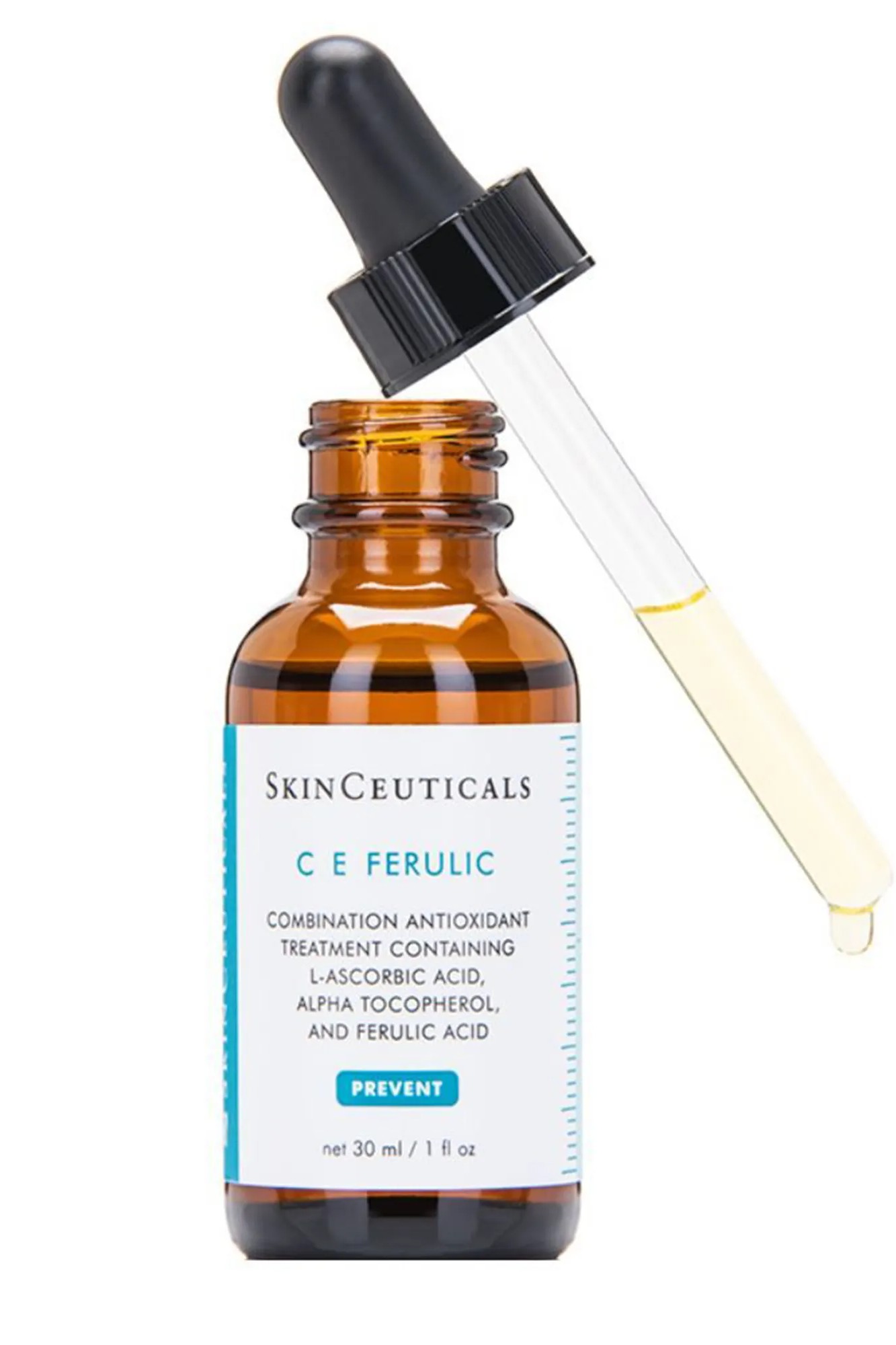
Vitamin C won’t do anything for raised or indented acne scars, but it can help with uneven skin tone and brighten dark spots. This cult favorite is the obvious choice for a product that delivers on its promises. It's going to even out your skin tone and texture, brighten your texture, and help fade pigmentation that much quicker. We should warn you though: it has a bit of a strong scent. It goes on a bit tacky, but dries down completely within a minute or two.
Pros: Improves texture; Great preventative product
Cons: Won't help with texture; Smells
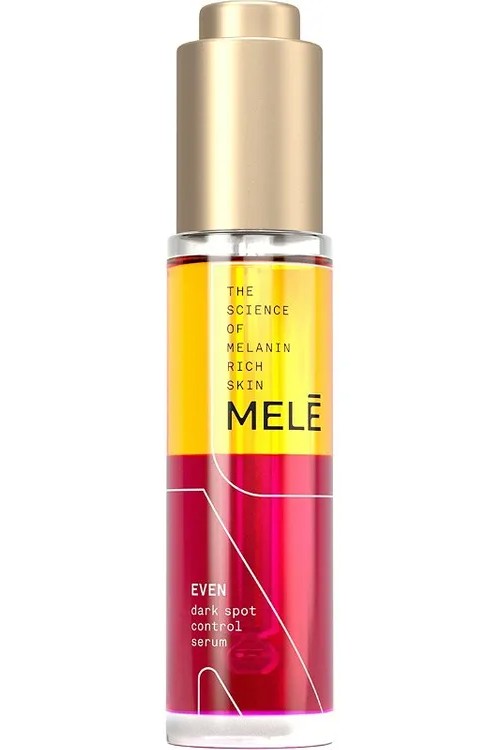
This is one of Dr. Garshick’s faves for dealing with discoloration in darker skin tones. It has niacinamide, an ingredient that’s great for redness and inflammation, as well as vitamin E, which is a brightening agent. Add vitamin C and retinol into the mix, and it's a powerhouse for fading (and preventing) dark spots. Stick to using this at night though as it can run a bit oily and shiny.
Pros: Dermatologist-approved; Great for dark skin tones
Cons: Oily texture
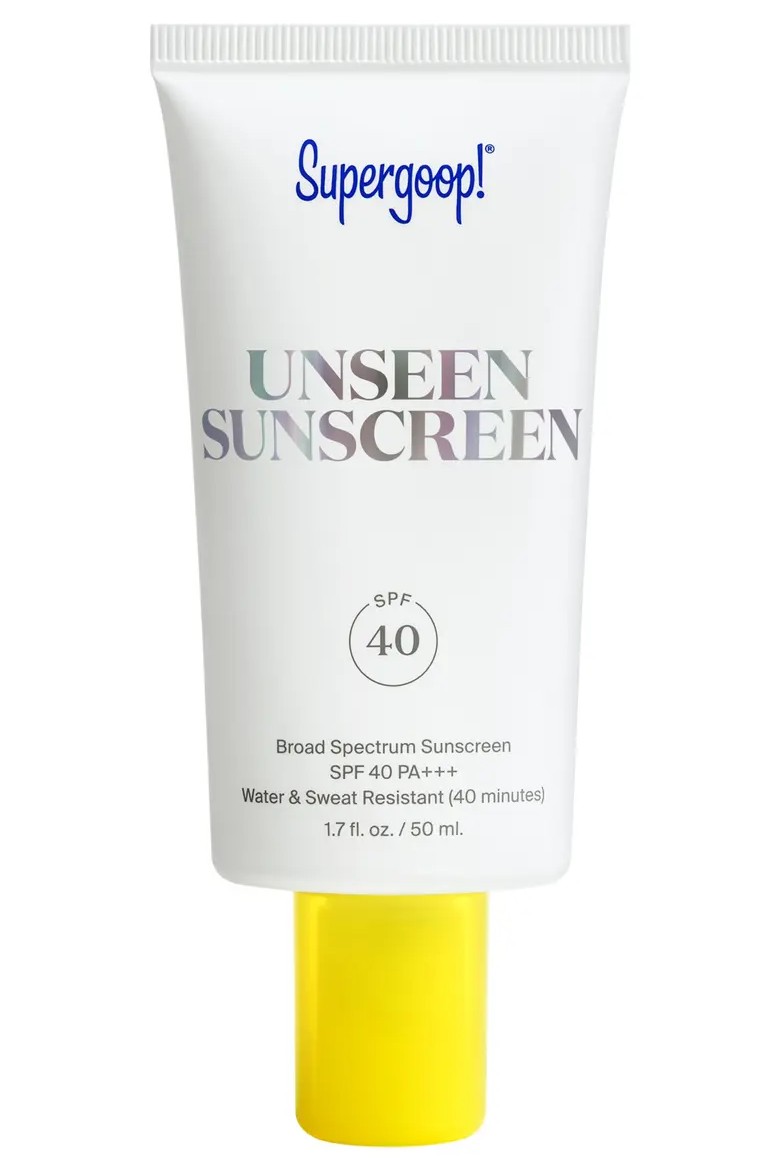
While SPF isn't going to make your acne scars disappear, it is one of the most important products to prevent pigmentation, be it from acne or melasma, from getting worse. Dr. Garshick recommends a non-comedogenic sunscreen for anyone dealing with acne—and we can’t get enough of this Supergoop! formula. Its texture is truly weightless, isn’t oily at all, and works like a dream under makeup. It leaves a velvety, radiant finish and has the best blurring effect. Just remember that in order to get full sun protection benefits, you will need to reapply every two hours.
Pros: Dermatologist-approved; Great for prevention
Cons: Difficult to reapply over makeup
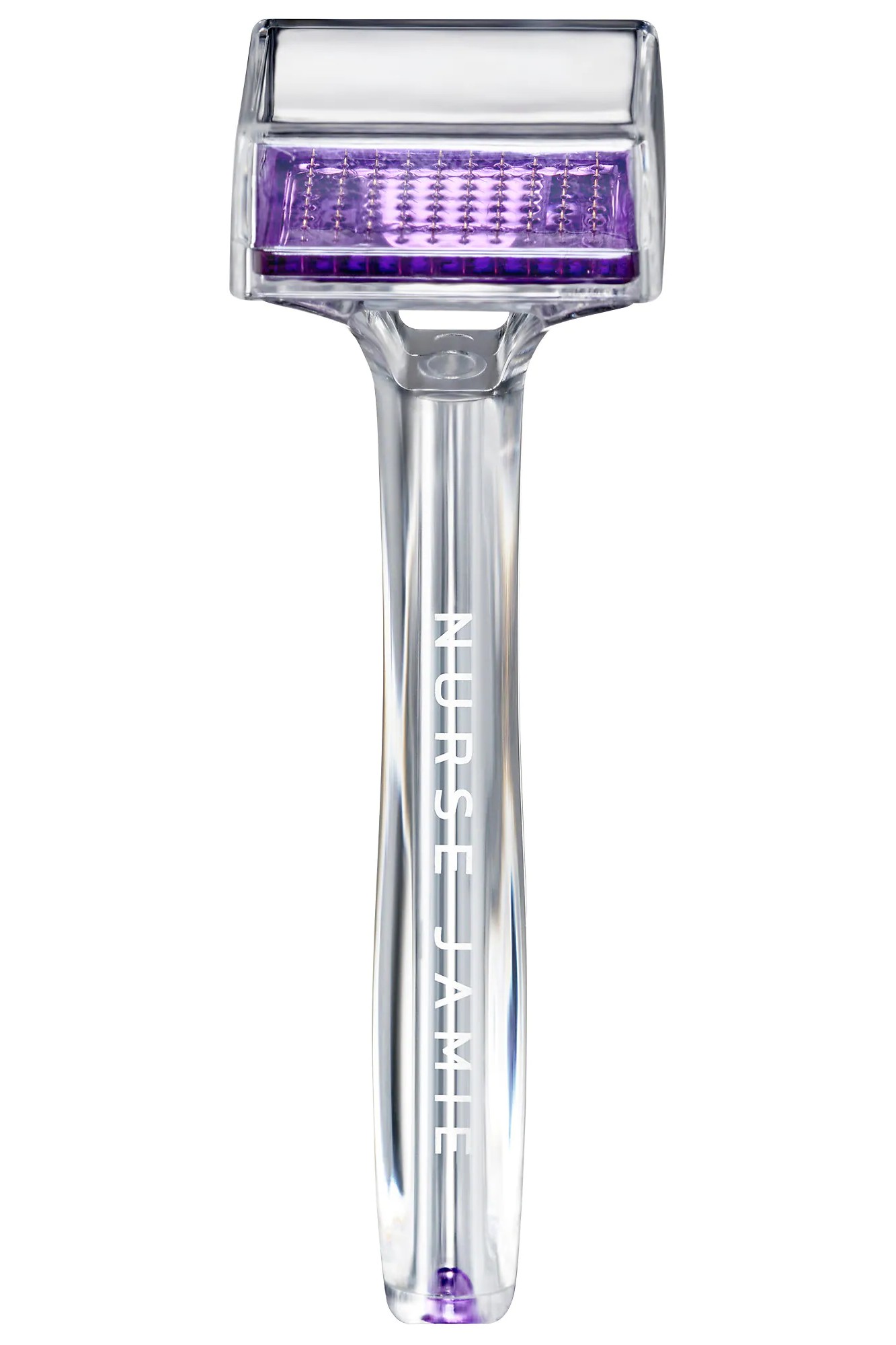
This easy-to-use tool works wonders when targeting the uneven texture of acne scars. The stamp has little micro needles that work to exfoliate the skin’s surface, while also making sure your skincare products (pick a serum from this list) work even better. A word of warning: don’t overdo it with this tool. Stick to using it three times a week, using *gentle* pressure, and avoid the eye area.
Pros: Easy to use; Plumps skin; Promotes new collagen
Cons: Not ideal for sensitive skin
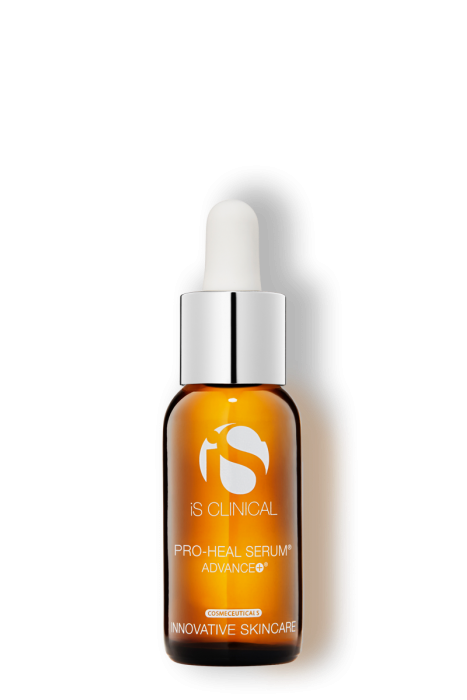
For an all-in-one situation, iS Clinical has you covered. This super-charged product is packed with antioxidants like vitamin C and retinol, so rest assured you’re getting your dose of dermatologist-recommended ingredients. As an added bonus, this serum features olive leaf extract, which has anti-inflammatory properties that can help calm down cystic acne. As an added bonus, this serum is going to brighten up your overall complexion and give a plumped up appearance.
Pros: Multi-purpose; Anti-inflammatory; Good for redness
Cons: Expensive
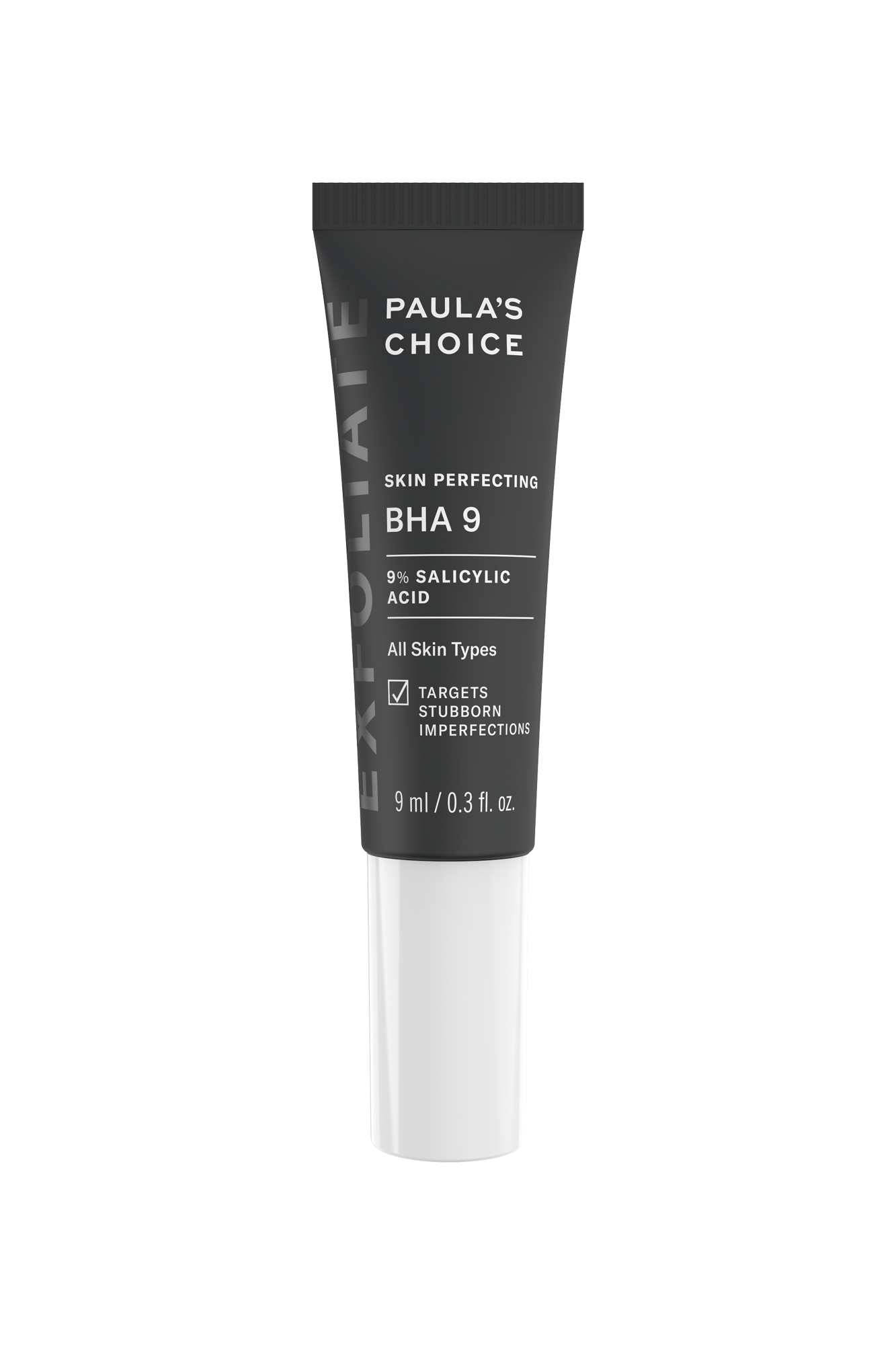
Dr. Young and Dr. Garshick agree: Salicylic acid is one of the best ingredients for addressing acne and oily skin. This exfoliant will do its part to reduce the likelihood of developing new pimples that can lead to scarring, make pores look smaller, and smooth out rough patches of dry skin. It has a nine percent concentration, so rest assured it's the real deal. While it can be applied in a thin layer, your best bet is to only apply to areas that need treatment—it can be drying.
Pros: Dermatologist-approved; Combats acne
Cons: Can feel tacky; Small bottle
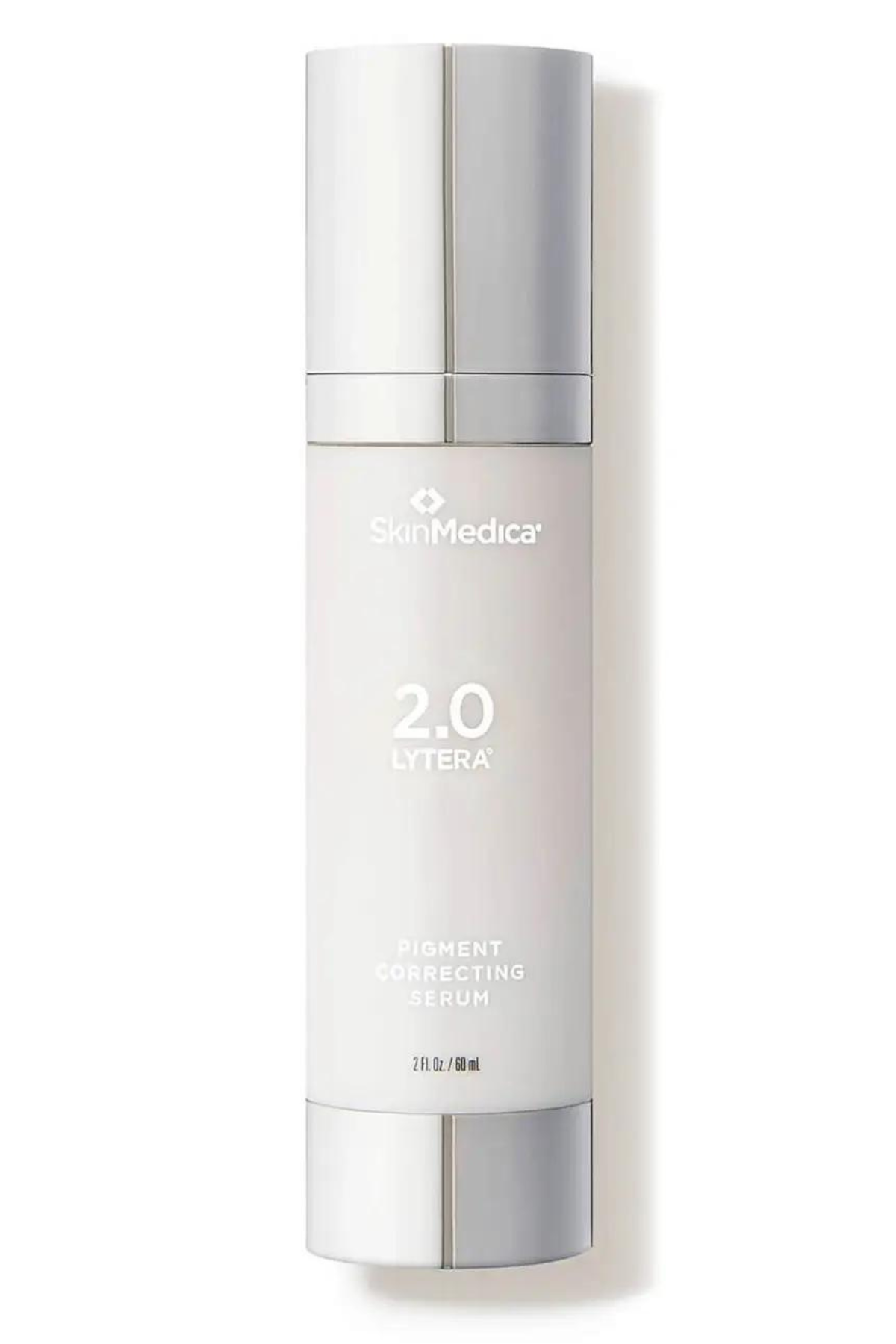
If you’ve tried serums and creams galore to no avail, turn your attention to this wildly powerful hyperpigmentation treatment. It comes with a hefty price tag, but it’s well worth it. With a dermatologist-approved formulation and clinical results to boot, this serum, which is powered by tranexamic acid, brightens hyperpigmentation and promotes a healthy skin barrier. While it’s largely applauded for it’s melasma-reducing benefits, it’s equally as amazing at fighting dark marks that take up residence after an acne flare.
Pros: Powerful and effective
Cons: Expensive
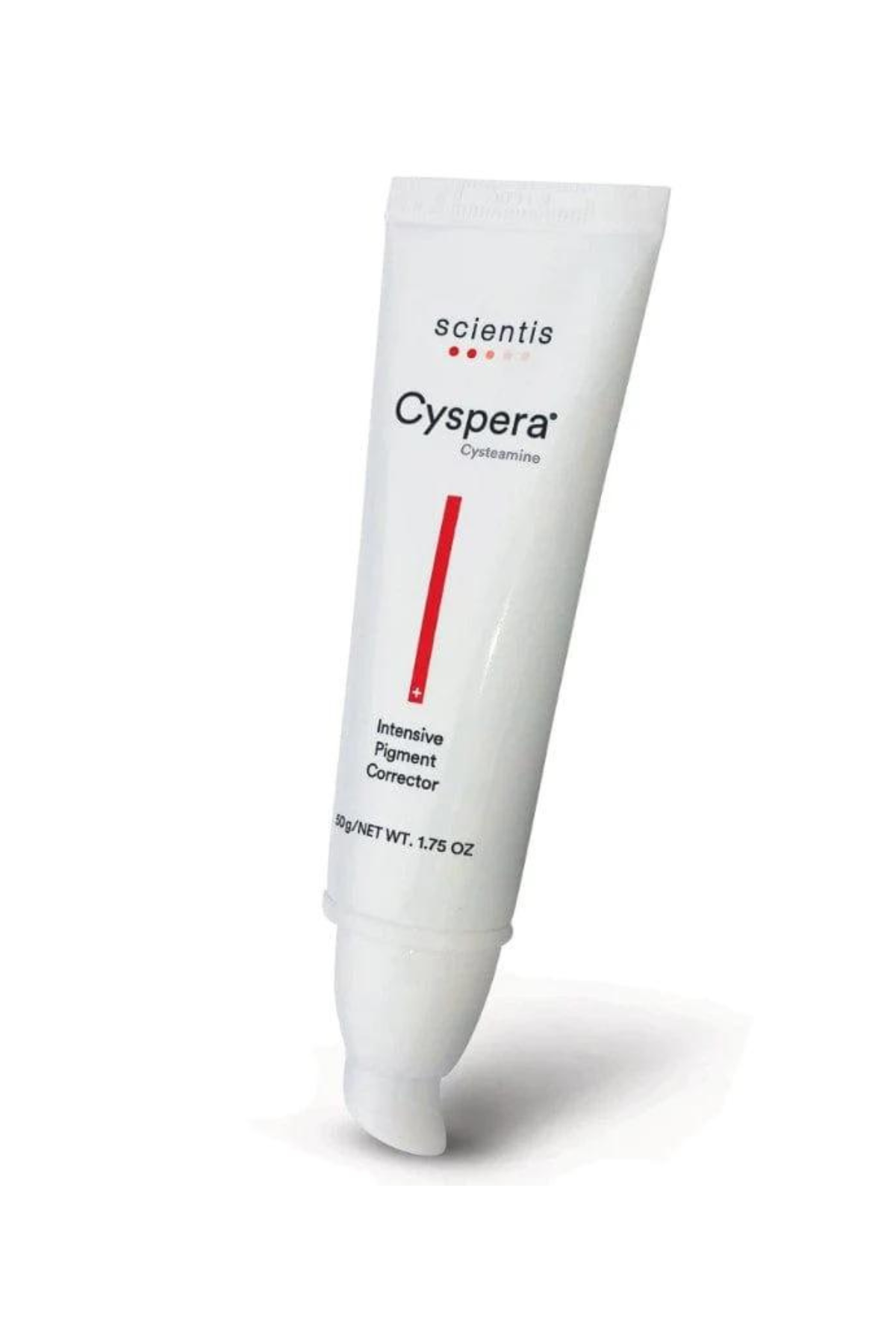
If you can get past the rotten egg-esque smell, you’ll be thrilled with the results this powerful cream can give. This is one of the most powerful product on the market when you’re trying to fight stubborn acne scars. That said, practice extra caution when using it. This is a wash-off treatment that should not be left on for any more than 15 minutes. PSA: A warm, tingling sensation is normal, but shouldn’t last more than 30 minutes.
Pros: Powerful, Gets rid of stubborn scars
Cons: Smelly
Meet the Dermatologists

Marisa Garshick, MD, FAAD is a leading board-certified dermatologist serving patients throughout Manhattan, New York at MDCS Dermatology: Medical Dermatology & Cosmetic Surgery, as well as an assistant clinical professor of dermatology at Cornell - New York Presbyterian Medical Center. Dr. Garshick provides a wide variety of cosmetic and medical procedures and services including treatments for acne, eczema, hyperhidrosis, moles, psoriasis, rosacea, signs of aging, skin cancer, skin tags, vitiligo, and wrinkles. She completed her undergraduate education at Emory University and attended medical school at Tufts University School of Medicine, where she graduated with Research Honors and Alpha Omega Alpha. As a medical student, Dr. Garshick was awarded the prestigious Doris Duke Clinical Research Fellowship at Harvard Medical School, during which she performed dermatology clinical trials and research at Massachusetts General Hospital. She was also awarded the American Medical Women’s Association Glasgow-Rubin Academic Achievement Award for graduating in the top of her class and the William Dameshek Award for Research Excellence. Dr. Garshick’s post-graduate training in dermatology began with an internship at Memorial Sloan Kettering Cancer Center. She completed her dermatology residency at Cornell’s New York Presbyterian Hospital, where she served as Chief Resident in Dermatology. Dr. Garshick has numerous publications in scientific journals and book chapters, including a chapter on the treatment of acne, and has presented at national meetings. She specializes in general medical dermatology, including adults and pediatrics, and cosmetic dermatology, including neurotoxins, fillers, chemical peels, and lasers. Dr. Garshick is also involved in teaching the dermatology residents at Cornell, leading discussions reviewing the latest dermatology literature. She is a member of the American Academy of Dermatology, the American Society of Dermatologic Surgery and the Women’s Dermatologic Society, as well as an Assistant Clinical Professor.

Dr. Peter Young is a board-certified dermatologist practicing in Massachusetts. Prior to moving to Massachusetts in 2000, he served as a physician in the U.S. Army for nine years. After receiving his medical degree from Albany Medical College in Albany, New York, he completed his dermatology residency at Walter Reed Army Medical Center in Washington, DC. He then served as Chief of Dermatology at Fort Bragg in North Carolina prior to moving to Massachusetts.In addition to publishing medical articles on various topics, he's been invited to speak at national medical meetings on teledermatology. He is a fellow of the American Academy of Dermatology and a member of the Massachusetts Medical Society.
Stay In The Know
Get exclusive access to fashion and beauty trends, hot-off-the-press celebrity news, and more.

Samantha Holender is the Senior Beauty Editor at Marie Claire, where she reports on the best new launches, dives into the science behind skincare, and shares the breakdown on the latest and greatest trends in the beauty space. She's studied up on every ingredient you'll find on INCI list and is constantly in search of the world's glowiest makeup products. She's constantly tracking the biggest nail and hair trends to pop up in the beauty space, going backstage during fashion weeks, tracking celebrity looks, and constantly talking to celebrity hair stylists, nail artists, and makeup artists. Prior to joining the team, she worked as Us Weekly’s Beauty and Style Editor, where she stayed on the pulse of pop culture and broke down celebrity beauty routines, hair transformations, and red carpet looks. Her words have also appeared on Popsugar, Makeup.com, Skincare.com, Delish.com, and Philadelphia Wedding. Samantha also serves as a board member for the American Society of Magazine Editors (ASME). She first joined the organization in 2018, when she worked as an editorial intern at Food Network Magazine and Pioneer Woman Magazine. Samantha has a degree in Journalism and Mass Communications from The George Washington University’s School of Media and Public Affairs. While at GWU, she was a founding member of the school’s HerCampus chapter and served as its President for four years. When she’s not deep in the beauty closet or swatching eyeshadows, you can find her obsessing over Real Housewives and all things Bravo. Keep up with her on Instagram @samholender.
-
 Duchess Sophie Stepped Up to Represent King Charles at Event Amid Calls for King Charles to "Slow Down"
Duchess Sophie Stepped Up to Represent King Charles at Event Amid Calls for King Charles to "Slow Down"The Duchess of Edinburgh filled in for The King at the Royal Military Academy Sandhurst.
By Kristin Contino Published
-
 See the Top-Scoring WNBA Draft Looks
See the Top-Scoring WNBA Draft LooksThis year's rookie class came to win.
By Halie LeSavage Published
-
 Julia Fox's Super Short Coachella Haircut Is a Cheeky Nod to 'White Lotus'
Julia Fox's Super Short Coachella Haircut Is a Cheeky Nod to 'White Lotus'Leslie Bibb fans, rise.
By Ariel Baker Published